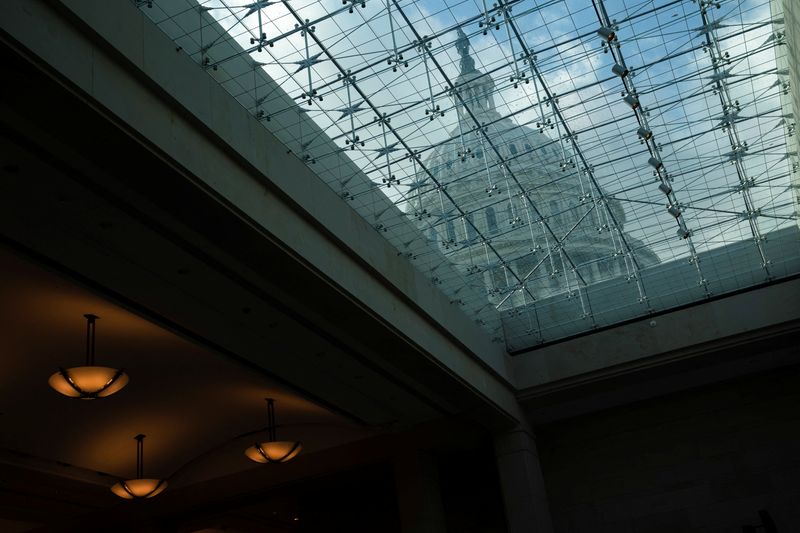By Timothy Gardner
WASHINGTON (Reuters) -The U.S. House of Representatives passed a bill on Friday limiting the ability of the energy secretary to tap the strategic oil reserve without developing plans to increase the amount of public lands available for oil and gas drilling.
Representatives backed the bill 221 to 205, with support from only one Democrat. President Joe Biden would veto the legislation should it pass Congress, the White House said this week. The bill is expected to face an uphill battle in the Senate, which unlike the House, is controlled by Biden's fellow Democrats.
The Strategic Production Response Act, or H.R.21, requires the U.S. energy secretary to develop a plan to increase oil and gas leasing on federal lands, including submerged ones on the Outer Continental Shelf, before tapping the Strategic Petroleum Reserve. It would not stop the president from tapping the SPR in case of an emergency, such as a hurricane that halts production of crude.
Republicans, who took control of the House this month, have pushed a series of political messaging bills that appeal to conservative voters.
Republican backers of the bill said the Biden administration acted recklessly in selling 180 million barrels from the reserve last year, or 1 million barrels a day for six months, in the biggest release ever. That drawdown and others Biden approved have pushed the level of the SPR to its lowest level since 1983.
The SPR should be used only to address true emergencies, said Representative Cathy McMorris Rodgers, a Republican and chair of the House Energy and Commerce Committee.
"President Biden has turned a longtime bipartisan strategic asset, the Strategic Petroleum Reserve, into a political tool to cover up the consequences of his expensive rush-to-green agenda," said Rodgers.
The Biden administration, which is pursuing an aggressive policy to curb climate change by supporting the energy transition off fossil fuels, has said it sold the oil to counter gasoline prices that had risen to $5.00 a gallon and helped fuel the highest inflation levels in decades. Oil prices spiked last year on Russia's invasion of Ukraine and as the world began to emerge from the pandemic.
U.S. Energy Secretary Jennifer Granholm told reporters at the White House this week that Biden "will not allow the American people to suffer because of the backwards agenda that House Republicans are advancing."
